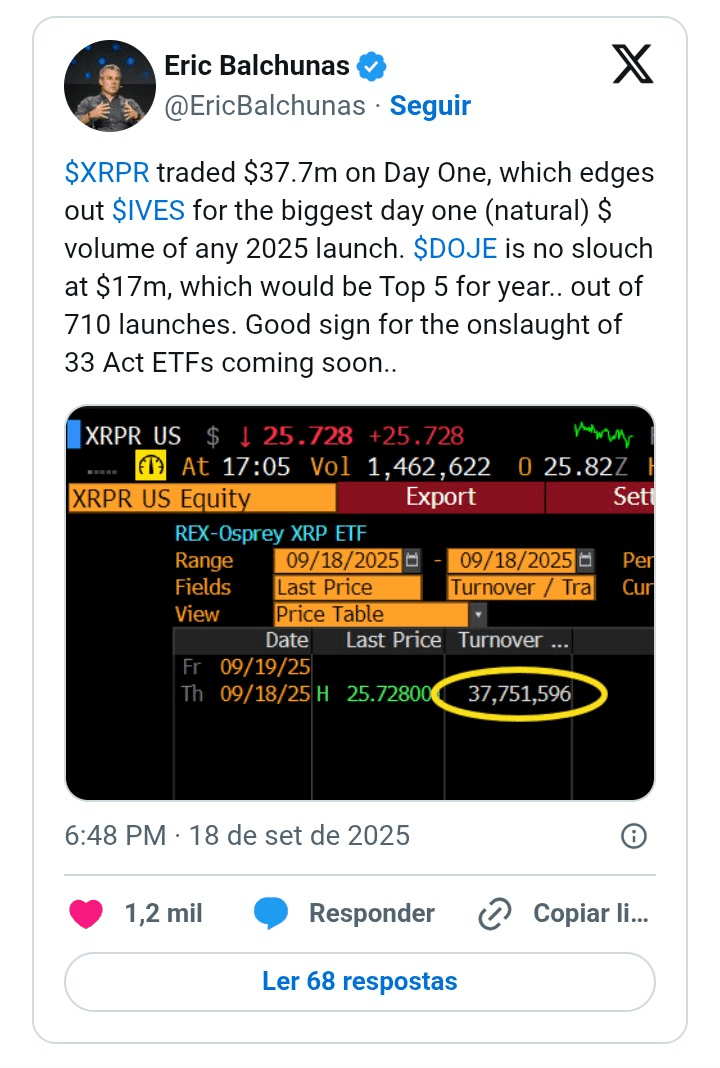
The first ETF that allows US investors to gain exposure to XRP had an impressive debut on Thursday (18), attracting about $38 million (R$ 202 million) in investments and becoming the most robust ETF launch of 2025.
The XRP fund, launched by Rex Shares and Osprey Funds, exceeded expectations, with investors seeking to gain exposure to the cryptocurrency.
On the same day, the DOJE ETF — the first aimed at Dogecoin in the North American markets and also issued by Rex and Osprey — raised about $17 million on its first day of trading.
According to Bloomberg's senior ETF analyst, Eric Balchunas, the performance of both funds demonstrates pent-up demand for altcoins, something he described as a 'positive sign' for the list of crypto ETFs awaiting SEC approval.
It is worth noting that, on Wednesday, the Wall Street regulator approved new generic standards for the listing of commodity-based trusts, which may facilitate the arrival of more cryptocurrency ETFs in the market.
At the moment, XRP was quoted at $3.01, after a drop of more than 3% in 24 hours, while Dogecoin was around $0.27, registering a decline of 6% in the same period, according to data from CoinGecko.
More crypto ETFs on the horizon
After the huge success of the Bitcoin and Ethereum ETFs approved by the SEC last year, issuers are eager to meet the growing appetite for investment products focused on crypto assets.
The SEC has already received more than 90 applications for funds based on altcoins and combinations of tokens and strategies. The BTC and ETH ETFs have already moved around $57 billion and $14 billion, respectively.

The XRP and DOGE ETFs from Rex Shares and Osprey Funds offer investors exposure to the two altcoins through a subsidiary registered in the Cayman Islands, which is wholly owned and controlled by the fund.
Rex-Osprey launched the funds based on the Investment Company Act of 1940, instead of the Securities Act of 1933, as is the case with spot funds. The 1933 Act focuses on the securities or commodities covered by the ETF, while the 1940 Act regulates investment companies, such as mutual funds.


